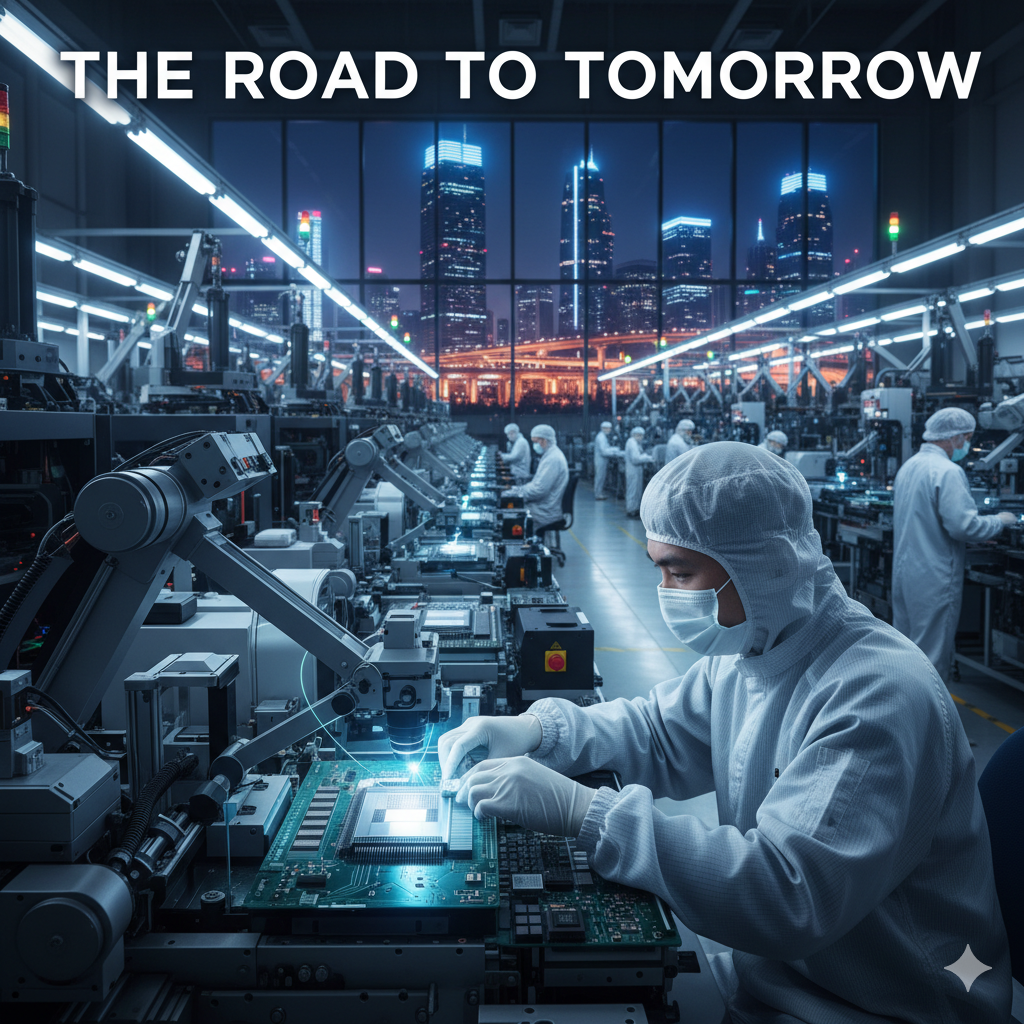When Arman first stepped out of Taoyuan International Airport, the unfamiliar scent of cold morning air filled his lungs. The bright signs in Mandarin, the orderly lines, and the fast-paced movement of people made him feel as if he were in a completely different universe. Back home in Laguna, roosters woke him up not LED billboards and train announcements.
At 32, Arman had never imagined working abroad. He once ran a small vulcanizing shop while helping his parents tend their sari-sari store. But the pandemic hit hard, wiping out their savings and forcing him to rethink their future. When a recruiter told him about a factory job in Taiwan with free accommodation and stable pay, he knew it was the opportunity he had been praying for.
“Magtitiis muna tayo, Mahal,” he told his wife, Rhea, while holding their daighter Mia’s tiny hand. “Balang araw, makakasama ko rin kayo dito.”
With that promise tucked in his heart, he boarded the plane.
Arman worked at a large electronics manufacturing plant in Hsinchu, known for producing components for laptops and mobile phones. His role was small but crucial operating machines that assembled microchips. He spent the first two weeks attending training sessions, observing senior workers, and memorizing safety rules.
“You Filipinos learn fast,” his supervisor, Mr. Wu, said with a nod. That single compliment became Arman’s fuel to push harder.
The work was nothing like his old vulcanizing shop. Here, he wore a full-body cleanroom suit, gloves, goggles, and a mask. The machines hummed constantly, and the temperature inside was kept cold to avoid overheating. He had to stand for long hours, monitor production screens, and fix minor glitches.
Still, Arman reminded himself: This is for Mia’s future.
He lived in dormitory with three other Filipinos. Every night, they gathered around a small induction cooker, sharing pancit canton and stories about their families. The camaraderie made Taiwan feel less foreign.
Three months in, the challenges began piling up. Arman felt exhausted from night shifts. His legs ached, his shoulders tensed, and sometimes he fell asleep the moment he reached his bed. He missed home-cooked meals, missed hearing Tagalog on the streets, missed seeing his daughter’s smile without buffering internet.
One night, a machine malfunctioned. Alarms blared, and production halted. Workers panicked, unsure how to respond. Arman, remembering the training, rushed to the control panel and shut the system down safely.
Mr. Wu approached him. “Good job. You prevented a big accident.”
But afterward, Arman began doubting himself. What if next time he made a mistake? What if fatigue caused him to overlook something? The pressure weighed on him.
During a video call, Rhea noticed the heaviness in his voice.
“Pagod ka na, Love?” she asked softly.
“Oo,” he whispered. “Pero lalaban tayo. Para sa kinabukasan natin.”
Her smile, warm and steady, reminded him why he was here.
One payday, Arman finally sent home enough money to enroll Mia in a better school. When Rhea sent him a picture of their daughter wearing her new uniform, he cried silently inside the dorm.
Later, he treated himself and his roommates to bubble tea something he never imagined spending money on back in the Philippines. They laughed and shared dreams.
“Balang araw, may sarili tayong bahay,” one said.
“Balang araw, restaurant business naman!” another added.
Arman listened, smiling. “Balang araw…makakasama ko ulit ang pamilya ko.”
He started saving aggressively, cutting personal expenses, and even learning basic Mandarin so he could communicate better. His confidence grew with each passing month.
Six months later, the factory implemented a new machine that needed skilled operators. Arman volunteered despite feeling nervous. But he studied every detail, asked his team leader countless questions, and practiced during break hours.
One afternoon, while others struggled, Arman managed to calibrate the machine perfectly. His team leader was impressed.
“You shoe leadership,” he said. “We consider you for line leader position.”
Arman’s heart pounded. A promotion meant higher pay, a more stable contract, and perhaps finally the chance to bring his family to Taiwan later.
But his joy was short-lived.
A week later, he received a call from his sister. Their father had been hospitalized due to a mild stroke.
The world seemed to stop.
“Gusto ko nang umuwi,” Arman said through tears.
But airfare was expensive, and leaving suddenly meant lost wages. After hours of thinking, he spoke to his supervisor.
Surprisingly, Mr. Wu allowed him emergency leave.
“You are good worker. You deserve to see your family.”
Arman flew home and spent a week taking care of his father. Being home reminded him of the warmth he had been missing. But he knew he had to return to Taiwan to continue their journey.
Returning to Taiwan felt different this time. The city lights no longer overwhelmed him. The factory noise no longer scared him. He felt grounded aware of his purpose, aware of how far he had come.
Months passed, and he officially became line leader. His job now included guiding new workers, troubleshooting machine issues, and coordinating with Taiwanese engineers.
He sent more money home, slowly building their dream a small lot back in Laguna where they planned to build a house.
Two years later, Arman’s dream came true.
He welcomed Rhea and Mia at Taoyuan airport, their eyes wide with wonder just as his had been the first day. He hugged them tightly.
“Welcome sa bagong buhay natin,” he said, voice cracking.
They walked together toward the exit, the bright lights reflecting the hope that filled their hearts.
For the first time, Arman felt complete.
The sacrifice, the homesickness, the long nights inside the factory everything was worth it.



